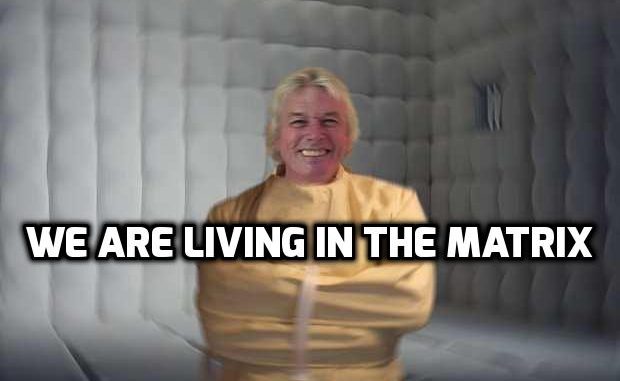
A new study has found that people who have a low intelligence are more likely to believe in “pseudo-profound bullshit” (their words, not ours), and that includes liking and sharing inane meaningless unproven memes on social media.
While the report criticises what it terms “conspiracy theories”, it acknowledges that pseudo-profound bullshit are statements that make very little sense in the real world, and have no basis in science. Unfortunately, the conspiracy arena seems to be more saturated with this kind of nonsense than any other.

BYPASS THE CENSORS
Sign up to get unfiltered news delivered straight to your inbox.
You can unsubscribe any time. By subscribing you agree to our Terms of Use
Latest Video
Sciencealert.com reports:
It probably comes as no surprise that this kind of bullsh*t is everywhere these days, particularly when it comes to the Internet. But very little research has gone into why some people are so responsive to these types of statements, and so PhD student Gordon Pennycook and a team of researchers from the University of Waterloo in Canada have published what they believe is the first study to “empirically investigate” bullsh*t.
And just in case you were wondering, yes, the word bullsh*it does appear in the article precisely 200 times, which is likely to be another first.
To test people’s belief in pseudo-profound statements, the researchers used a random generator to come up with a range of nonsense quotes and sentences. They then asked 280 undergrad students to rate these statements from 1 to 5 based no how profound they found them, with 5 being very profound, and 1 being not at all.
The mean rating for the statements was 2.6, which is kinda high given that the statements didn’t really make any sense at all. But what was more worrying was that 27 percent of the participants rated the sentences a 3 or more.
“These results indicate that our participants largely failed to detect that the statements are bullsh*t,” write Pennycook and his team.
In a second experiment, the researchers mixed up the randomly generated sentences with “particularly vague” tweets posted by spiritualist Deepak Chopra. Again, this new group of participants rated the statements pretty similarly on the profundity scale.
A final study looked at how people rated mundane statements, such as “Most people enjoy some sort of music” compared to well-known profound quotes, to make sure the participants weren’t just rating everything as profound. And as you might imagine, the mundane statements ended up being rated a lot lower.
What’s really interesting is that the participants also went through extensive cognitive testing, including numeracy and verbal assessments, and were also quizzed on their spiritual beliefs and views on things like alternative medicine and conspiracy theories. Looking at the data, several links appeared:
“Those more receptive to bullsh*t are less reflective, lower in cognitive ability (i.e., verbal and fluid intelligence, numeracy), are more prone to ontological confusions and conspiratorial ideation, are more likely to hold religious and paranormal beliefs, and are more likely to endorse complementary and alternative medicine.”
So what’s the point of the study? The researchers hope that by understanding what makes people prone to being sucked in by dubious statements, they’ll be able to come up with strategies for protecting people against bullsh*t.
The study could also help us understand what it is about people that make them so reluctant to take an evidence-based approach to thinking about things like vaccines and climate change.
“The emerging picture is that people have divergent psychological profiles that make them more or less likely to believe in certain phenomena, buy into conspiracy theories, embrace the language and promises of alternative medicine over conventional medicine, and find meaning in a meaningless series of profound-sounding words,” Emily Willingham writes for Forbes.
So stay skeptical out there on the Internet kids, and try not to be too hard on the believers. They know not what they do.


